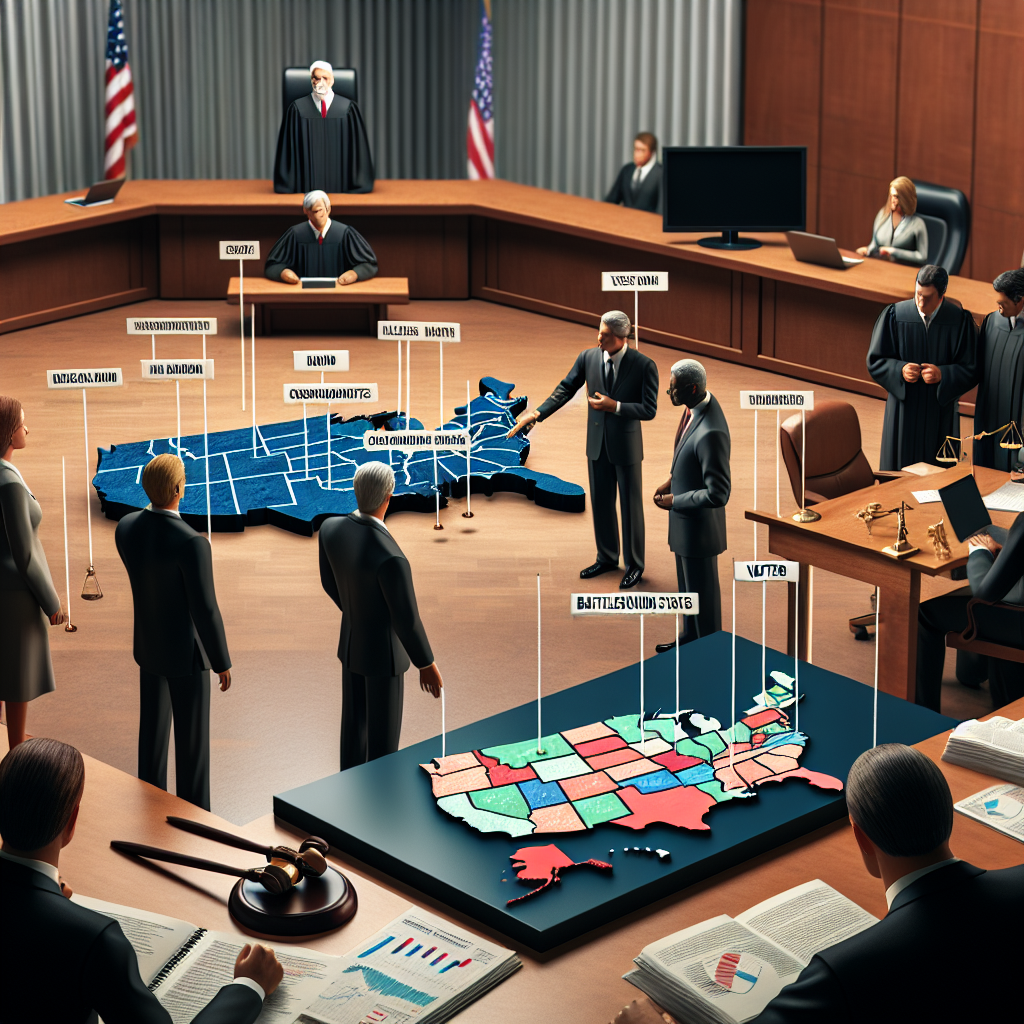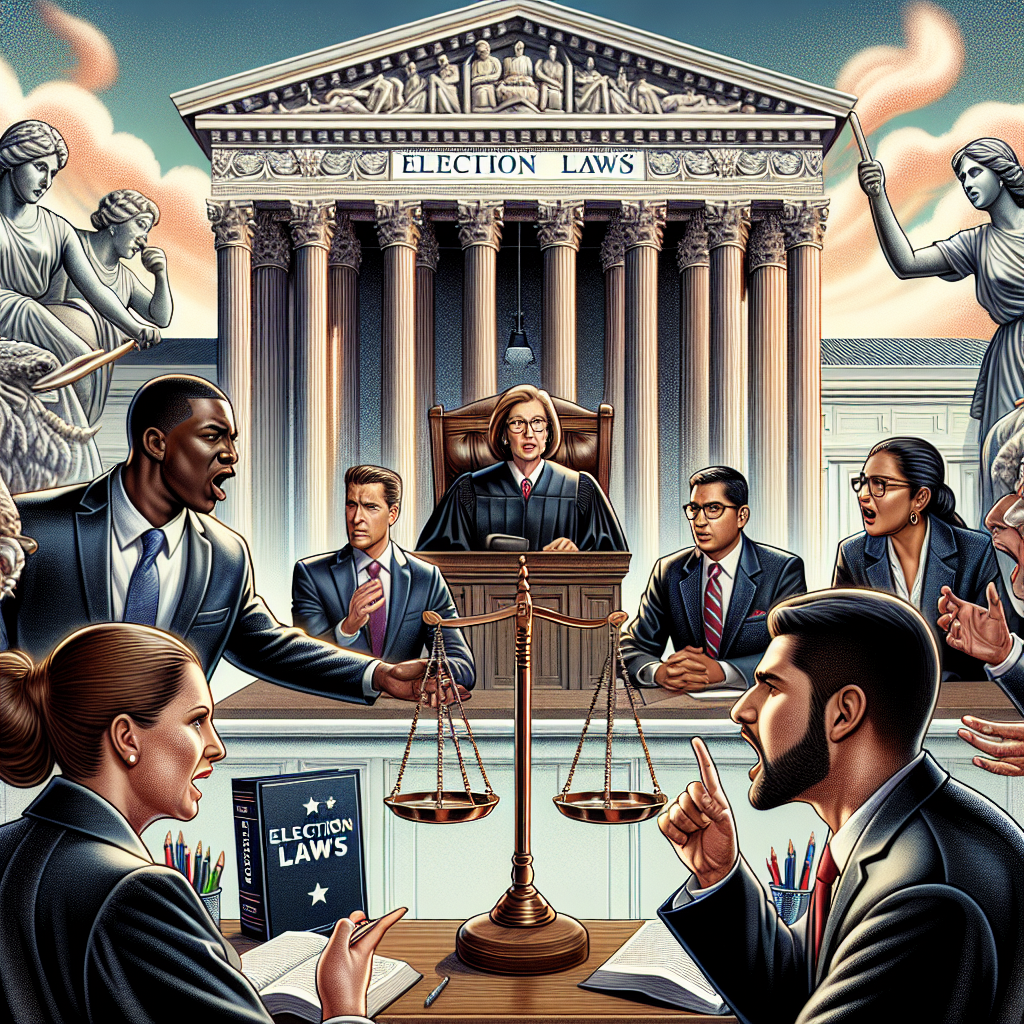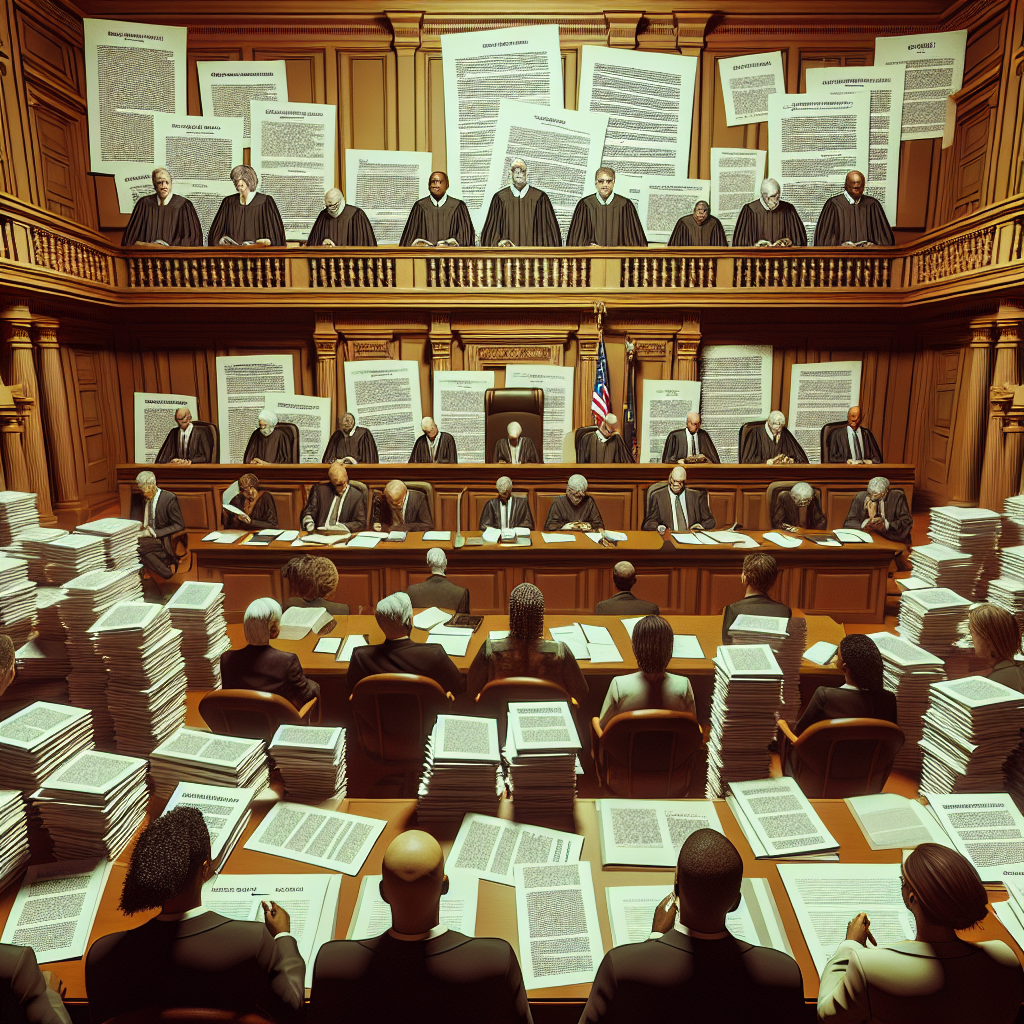In recent years, the landscape of voter registration in the United States has been increasingly challenged by various legal disputes, particularly in key battleground states. These states are crucial for determining electoral outcomes, and any significant impediment to voter registration can have far-reaching implications for democratic participation. The intersection of law and voter registration has created a contentious environment, with lawsuits frequently filed by advocacy groups, political parties, and state governments. This article aims to analyze the challenges posed by litigation on voter registration efforts, the specific states affected, recent court rulings, and the broader implications for upcoming elections.
Examining Legal Disputes Impacting Voter Registration Efforts
Legal disputes surrounding voter registration often stem from conflicting interests between state governments and advocacy groups focused on increasing voter participation. Lawsuits may challenge the constitutionality of specific voter ID laws, registration deadlines, or purging practices that are perceived to disenfranchise voters. For instance, some states have enacted stringent measures that critics argue disproportionately affect marginalized populations, leading to litigation aimed at striking down such laws. This adversarial dynamic creates an environment where voter registration becomes a flashpoint for broader discussions about access to the ballot.
Additionally, litigation can delay or obstruct implementation of voter registration initiatives. Advocacy groups often find themselves in protracted legal battles, seeking to enforce the provisions of landmark legislation like the National Voter Registration Act (NVRA). For example, cases may emerge over issues such as improper purges or failure to adequately provide registration opportunities at public agencies. These disputes not only consume resources but also create uncertainty for potential voters about their registration status, ultimately harming voter turnout.
The timing of these legal challenges also plays a critical role. With each election cycle, states may rush to implement new laws or systems to comply with court rulings, which can lead to confusion among voters. Efforts to streamline registration processes may be hindered by litigation, leaving citizens uncertain about how to navigate the evolving landscape. The continuous cycle of legal disputes can further erode trust in electoral processes, making it imperative for stakeholders to address these challenges head-on.
Key Battleground States Facing Voting Rights Litigation
Certain battleground states have become focal points for voting rights litigation due to their pivotal role in national elections. States like Georgia, Arizona, and Pennsylvania have witnessed a flurry of lawsuits aimed at contesting voter registration laws. In Georgia, for example, recent legislation requiring photo ID for absentee ballots has sparked multiple lawsuits, with opponents claiming it creates unnecessary barriers for voters, particularly among minority communities. The outcomes of these cases could significantly influence voter turnout in a state that has become increasingly competitive in recent elections.
Similarly, Arizona has faced legal scrutiny over its voter registration procedures, particularly regarding the accessibility of registration forms and the effectiveness of outreach efforts. Advocacy groups argue that the state’s policies disproportionately affect low-income voters and communities of color, prompting legal action to ensure equitable access to voter registration. The implications of these challenges in Arizona are particularly pronounced, as demographic shifts and changing political attitudes make it a key battleground state for both parties in forthcoming elections.
Pennsylvania has also seen its fair share of legal disputes. Recently, a lawsuit was filed challenging the state’s mail-in voting procedures, arguing that they complicate the registration process and create confusion among voters. With Pennsylvania being a critical swing state, the outcomes of such legal battles could alter the electoral landscape and determine the direction of future policymaking regarding voter registration efforts.
Analyzing Recent Court Rulings on Voter Registration Laws
Recent court rulings have further shaped the landscape of voter registration, reflecting the ongoing tensions between state regulations and advocacy efforts. In several instances, courts have upheld laws that critics argue suppress voter participation, citing the need for election integrity. For example, rulings in states like Georgia have upheld laws requiring voter ID, framing them as necessary measures to prevent fraud, despite evidence suggesting that voter impersonation is exceedingly rare.
Conversely, there have been notable victories for voter advocacy groups. Courts have ruled against certain aggressive voter purging practices, emphasizing the need for states to provide transparent processes and adequate notice before removing individuals from voter rolls. Such victories have underscored the judiciary’s role as a critical arbiter in the ongoing battle over voting rights, reaffirming the importance of protecting access to the ballot.
These court decisions have ripple effects beyond the immediate legal outcomes, influencing public perception of voter registration laws. As courts weigh the merits of various legal arguments, they also shape the political landscape by either reinforcing or dismantling public confidence in electoral processes. Thus, understanding these rulings is essential for stakeholders who navigate the complexities of voter registration and advocacy in an increasingly polarized environment.
Implications of Legal Challenges for Upcoming Elections
The ongoing legal challenges to voter registration laws have significant implications for the upcoming elections. With many states poised for critical races in both the midterms and presidential elections, the outcomes of these legal battles will determine the accessibility of the electoral process. A convoluted legal landscape can deter potential voters from participating, as confusion surrounding registration rules may lead to lower turnout rates, particularly among young and first-time voters.
Moreover, the heightened scrutiny of voter registration laws may energize advocacy groups to mobilize efforts aimed at educating voters about their rights. Organizations like the League of Women Voters and the American Civil Liberties Union are ramping up initiatives to ensure voters are aware of the registration requirements in their states. The intersection of litigation and grassroots activism may prove to be a double-edged sword, as legal battles can inspire greater civic engagement but also sow distrust in the electoral system.
Ultimately, the implications of these legal challenges extend beyond the immediate electoral cycle. The precedents set in current litigation could influence the development of future voting laws, shaping the trajectory of voting rights in the United States for years to come. With major implications for both parties, the stakes are high, and the outcomes of these disputes will undoubtedly resonate in the political arena long after the votes are cast.
As legal challenges continue to shape voter registration efforts in key battleground states, the stakes for upcoming elections have never been higher. The interplay of litigation, advocacy, and public engagement will play a pivotal role in determining whether voters can navigate the complex landscape of registration laws. As society grapples with issues of access and equity in the electoral process, the importance of understanding and addressing these challenges cannot be overstated. The ongoing legal battles will serve as both a test of the resilience of democracy and a testament to the critical importance of ensuring that every eligible citizen has the opportunity to make their voice heard at the ballot box.



